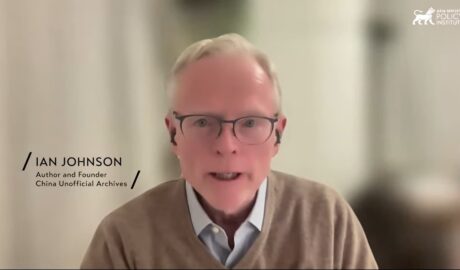
China’s government and Tibet’s spiritual leader, the Dalai Lama, are at loggerheads on what will happen when the latter dies, and a such for a new Dalai Lama will start. Get ready for two Dalai Lamas, predicts Ian Johnson, fellow at the Wissenschaftskolleg zu Berlin, and author of The Souls of China: The Return of Religion After Mao, at the ChinaFile.
Ian Johnson:
China’s playbook for the Dalai Lama’s succession will be quite straightforward: Beijing will ignore everything that the current Dalai Lama says and try a rerun of the Panchen Lama succession in 1995, which worked out quite well for the authorities.
For those who don’t remember, the old Panchen Lama died in 1989, and in 1995 both the Chinese Communist Party (CCP) and the Dalai Lama camps anointed their own successors. Each one claimed tradition, with the Chinese Communist Party rolling out a series of largely invented customs about golden urns to say that it, as the successor to the Qing dynasty, was following what had gone on since time immemorial, or something to that effect.
Whatever the truth, the tactic ultimately worked in China’s favor: There are two Panchen Lamas, and the power of that position has been fragmented.
Fast forward to now: If Beijing can do the same thing, that’s a big win for the Party’s ethnic policy. Some Tibetans will follow the Dalai Lama approved by the exiles because he essentially will have the imprimatur of the current Dalai Lama. But others won’t be so sure. China controls information and some will celebrate the Beijing-approved Dalai Lama.
More importantly, the new Dalai Lama won’t be appointed right away. Typically, a few years pass before the reincarnated Dalai Lama is found. Even then, the new Dalai Lama will be a kindergartener—not exactly someone mind-melding with Richard Gere and penning profound tracts on life in the 21st century.
The reality is it will be 20 years before the new Dalai Lama can weigh in on public debates. By then, it’s not clear what will be left of Tibetan culture anyway, especially with China racing forward with efforts to eradicate the language.
More comments at the ChinaFile.
Ian Johnson is a speaker at the China Speakers Bureau. Do you need him at your meeting or conference? Do get in touch or fill in our speakers’ request form.
Are you looking for more political experts at the China Speakers Bureau? Do check out this list.
